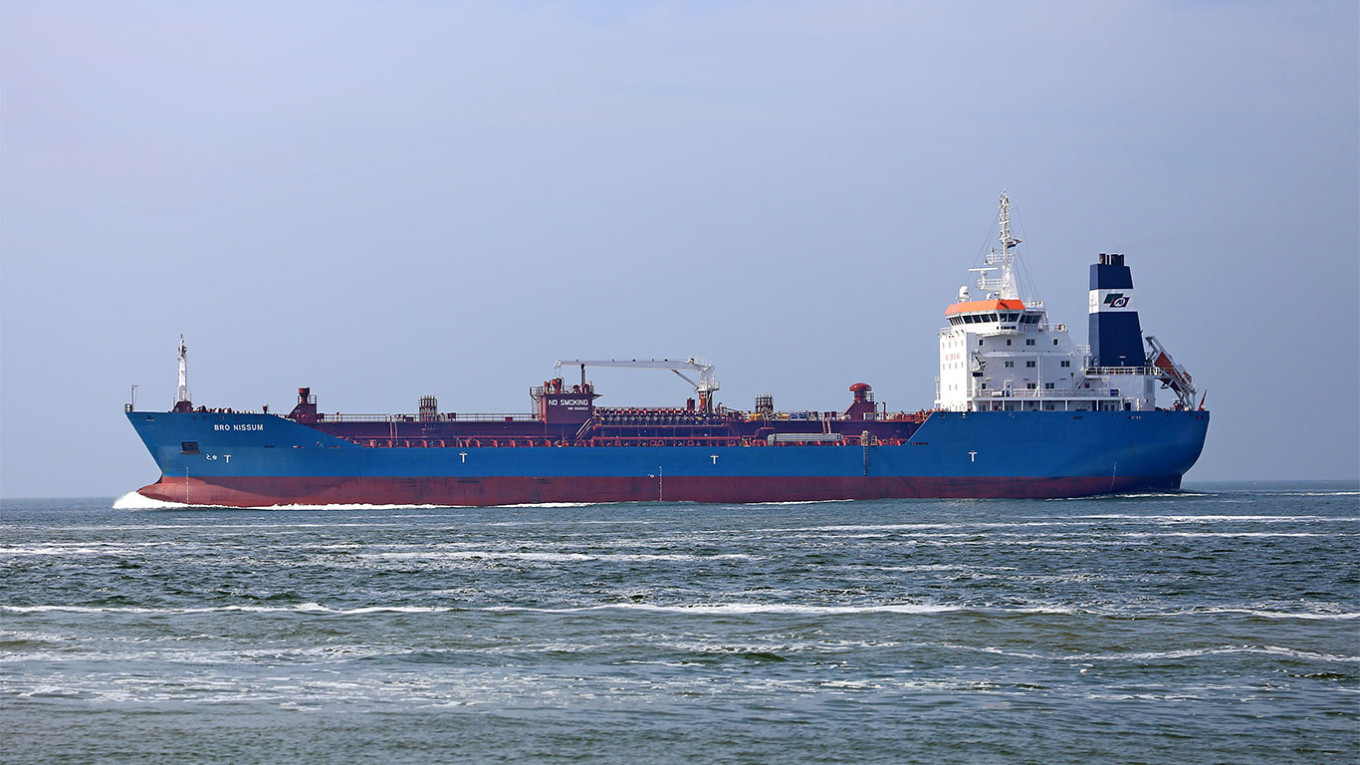Sovcomflot, Russia’s largest shipping company and the main operator of the country’s tanker fleet, reported steep financial losses in the first half of 2025 as Western sanctions take a growing toll on its business.
The state-owned firm posted a net loss of $435 million for January-June 2025 compared with a $324 million profit a year earlier, according to financial statements released under international accounting standards.
Revenue fell 39% to $618 million, while earnings from vessel operations were cut in half, dropping to $306 million. The company’s EBITDA — earnings before interest, taxes, depreciation and amortization — plunged 55% to $263 million.
Once the owner of the world’s largest fleet of Aframax-class oil tankers, Sovcomflot has seen its operations sharply curtailed since the United States and European Union tightened sanctions.
In January, Washington revoked the company’s license to operate its fleet and imposed blocking sanctions on dozens of its ships, forcing some vessels to sit idle and eroding freight rates.
The asset write-down from these measures alone totaled 29.8 billion rubles ($371 million), according to Freedom Finance Global analyst Andrei Chernov.
The EU has also barred Sovcomflot vessels from calling at its ports, further restricting the company’s routes.
A combined 426 tankers from Russia’s so-called “shadow fleet” — a network of ships assembled to skirt Western restrictions on oil exports — were under U.S., EU and British sanctions by June 1, according to the Institute for Energy and Finance.
These vessels, with a total deadweight capacity of 31.4 million tons, account for roughly 55% of Russia’s shadow fleet.
Many of these ships have effectively been “switched off” from the global oil trade, the institute said. But the gap has so far been filled by Greek shipping companies, which continue to transport Russian crude at prices well below the current $60-a-barrel cap.
A proposed cut in that cap to $47 a barrel currently under discussion by the European Commission could deal a far heavier blow to Russia’s oil industry and state revenues, the institute warned.
“Shippers would again refuse to handle Russian oil,” its analysts wrote, “and replacing them with enough shadow fleet vessels might no longer be possible.”
A Message from The Moscow Times:
Dear readers,
We are facing unprecedented challenges. Russia's Prosecutor General's Office has designated The Moscow Times as an "undesirable" organization, criminalizing our work and putting our staff at risk of prosecution. This follows our earlier unjust labeling as a "foreign agent."
These actions are direct attempts to silence independent journalism in Russia. The authorities claim our work "discredits the decisions of the Russian leadership." We see things differently: we strive to provide accurate, unbiased reporting on Russia.
We, the journalists of The Moscow Times, refuse to be silenced. But to continue our work, we need your help.
Your support, no matter how small, makes a world of difference. If you can, please support us monthly starting from just $2. It's quick to set up, and every contribution makes a significant impact.
By supporting The Moscow Times, you're defending open, independent journalism in the face of repression. Thank you for standing with us.
Remind me later.






